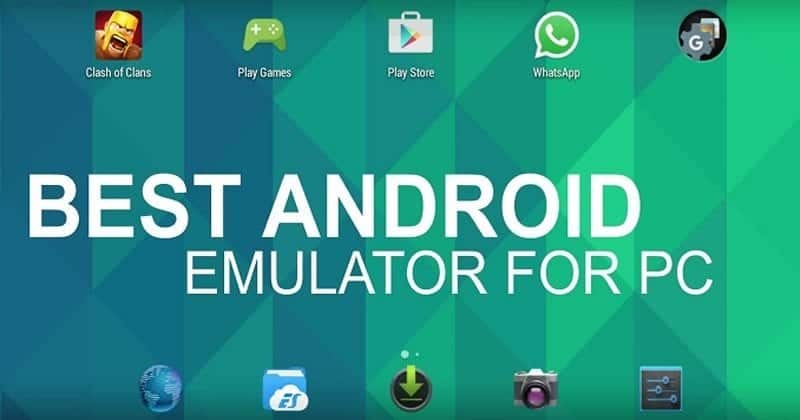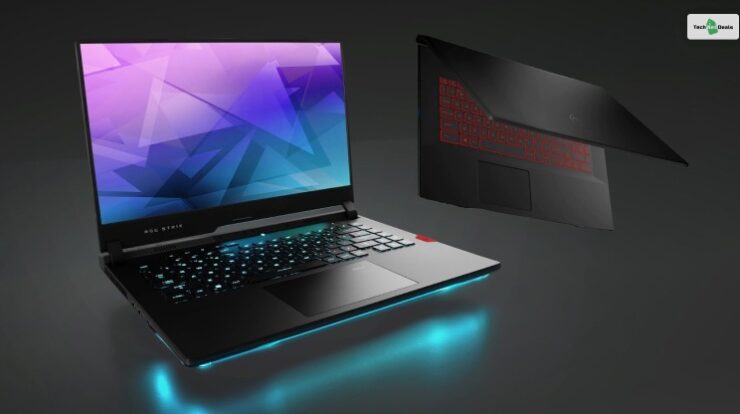
There are a whole lot of legitimate reasons why someone would want to run Android emulators on their PC. App developers could be trying to test their program before sending it out. Gamers might want to use a mouse and keyboard in their games. Perhaps you just want it to have it. In any case, Android emulation on PC is possible and it’s a lot easier than it used to be. Some old favorites either left the space or become unusable (Andy, AmiduOS, and Leapdroid), but everything else here should work fine for most people. Here are the best Android emulators for PC and Mac.
The three main uses for Android emulator
The three main uses for Android emulator
There are three primary uses for emulators. The first is that the most frequent and it’s for gaming. Gamers can use emulators on their computers to create some games easier to play. They don’t have to rely on the battery life of their apparatus and the presence of macros and other tricks help the process. Generally, these little tricks are not illegal (in many games) so nobody really has a problem with it.
The second most frequent use case is development. Android app and game developers like to test programs and games on as many devices that a possible before launching. Normally the Android Studio emulator is fine for this kind of work. But, Xamarin and Genymotion are excellent for this type of use as well.
The final primary type is productivity. This isn’t quite as common because Chromebooks are cheaper and better for using Android apps on something aside from a phone and most productivity tools are cross-platform. Any gaming emulator functions as a productivity emulator to an extent. But, people who have hyper specific use cases and a bit of knowledge can try ARChon and Bliss. Even so, in this day and age, we recommend going the Chromebook route if you would like to run Android programs in a laptop or computer environment. It is better that way.
At this time, no emulators run the newest versions of Android except for ones made for programmers. Luckily, most programs and games still function on older versions of Android so this shouldn’t be a big deal.
PROMOTED
LDPlayer
Price: Free
It includes the usual array of gamer-oriented attributes, including good keyboard mapping controllers, multi-instance, macros, high FPS, and graphical assistance. This is one of those few emulators on the list which gets active updates nearly every month. It supports a wide range of games, including Garena Free Fire, Clash of Clans, Black Desert Mobile, and lots of more.
Android Studio’s emulator
Price: Free
Android Studio is the default development console for Android. It comes with a whole lot of tools to help developers make games and apps specifically for Android. As it turns out, there is also a built-in emulator which you can use to try out your program or game. The setup is rather complicated and it may have a long time. Therefore, it’s not one we would advocate for consumer level use. However, developers can simply use this tool as their emulator for analyzing their apps. It also supports Kotlin in case programmers want to test that out. It’s too much of a pain for non-developer use because it takes so long to set up, but it works superbly for programmers.
ARChon
Price: Free
ARChon is not a traditional emulator. You install it like a Google Chrome extension. It then gives Chrome the ability to run Android apps and games (albeit with limited support). It’s not a simple emulator to get running. You will need to install the thing to Chrome. From there, you need to acquire APKs and load them in. As an additional rub, you may need to use a tool to modify the APK so as to make it compatible. There are a lot more steps to make this work than most other Android emulators for PC. On the other hand, though, it works with any operating system that can run an instance of Chrome (Mac OS, Linux, Windows, etc). We linked to the official GitHub where you can find detailed instructions for its use.
Bliss OS
Price: Free / Optional donations
Bliss is something just a little bit different. It functions as an Android emulator for PC via virtual machine. However, it can also just flat run on your computer via a USB stick. The boot-from-USB option is definitely a power user choice and not suggested for less intense use cases. As a VM install, the process is simple, but tedious if you have never made your own virtual machine before. The USB installation technique is even more complicated, but it lets your computer actually run Android natively out of boot. This makes Bliss a super special emulator if you can make it through the actions to the end. Of course, it only really runs well if your system is compatible so be prepared with a backup of your existing operating system. The system runs Android Oreo and that is among the newer versions of Android offered on an emulator. You may also find more information about it on its XDA-Developers thread here.
Bluestacks
Cost: Free / $2 per month
Bluestacks is the most mainstream of Android emulators. There are lots of reasons for that. For starters, it’s compatible with Windows and Mac. It was also one of the first that worked really well that still gets regular updates. The emulator targets mobile players. There’s a stigma with Bluestacks because it can feel a little bloated occasionally. It also has key-mapping and configurations for many games installed. That should make things a lot simpler. It’s one of the heaviest emulators on the listing. Bluestacks also made the MSI App Player, another excellent emulator that some believe works better than vanilla Bluestacks. You can try either one, they’re both by Bluestacks.
GameLoop
Price: Free
GameLoop, formerly known as Tencent Gaming Buddy, is an Android emulator for gamers. Naturally, it features additional games besides Tencent’s, although its collection isn’t as big as it might be. This one is not great for productivity or developmental testing. However, if you have an itch for mobile FPS gaming together with some titles, this is truly a fairly decent gaming emulator and it boasts a good collection of newer titles. Plus, the keyboard controls and performance is great.
Genymotion
Price: Free with paid options
This Android emulator is mostly for developers. It allows you to test your apps on a variety of devices without owning them. You can configure the emulator for an assortment of devices with different variants of Android to help fit your needs. For instance, you can conduct a Nexus One with Android 4.2 or a Nexus 6 using Android 6.0. It is easy to switch between virtual devices at will. It’s not great for consumer uses, but Genymotion does offer their services for free for individual use. It is most useful feature is its accessibility on both your desktop computer and the cloud. Those without strong computers can make Genymotion’s servers do all the work for them.
MEmu
Cost: Free
MEmu is another of those up and coming Android emulators that appears to perform quite well with gamers. One of its most significant features is support for both AMD and Intel chipsets. Most work on AMD processors, but it’s wonderful to see developers specifically listen to AMD’s platform. You can run multiple instances at once for many games or testing features. It aims itself at gamers much like Bluestacks and similar emulators. However, it is also quite usable as a productivity tool also. Its most recent upgrade was in mid-November 2019 and that updated added smart keymapping together with the usual performance enhancements and bug fixes.
Nox
Price: Free
Nox is another Android emulator for PC for gamers. That includes the normal stuff like key-mapping with your computer keyboard, real controller support, and even the ability to key-map gesture controls. As an example, you can assign the function to swipe right into an arrow key and use that in a game without actual hardware controller support. It’s a lot of fun and seems to work rather well the majority of the time. Additionally, it is completely free and in active development. The demo video below is quite old and it definitely ran better than that on my notebook.
Phoenix OS
Cost: Free
Phoenix OS is one of the more recent Android emulators for PC. Like most these days, it boasts a gamer experience. However, it also boasts a desktop-like experience so it actually works pretty well for productivity as well. This means you get every program and match in the Google Play Store. Phoenix OS also runs Android 7.1 which is relatively modern for an Android emulator. You can download the emulator from the official site and its forums are housed on XDA-Developers.
PrimeOS
Price: Free
PrimeOS is sort of a standout from the Android emulator space. It is not actually an emulator. It’s a gamer-focused Android experience, even though you can totally use this for productivity if you really need to. PrimeOS includes a gaming centre, support for mouse and keyboard, and access to the majority of Android programs and games. To be frank, it runs like ChromeOS minus all the Chrome parts. We have not tested this one comprehensive yet as it is new in 2019 from a Indian startup.
Remix OS Player
Price: Free
Remix OS Player by Jide is one of the newer Android emulators for PC (relatively speaking). It runs Android Marshmallow and that’s still relatively new compared to many of the others on the list. The installation process is really simple and using it also rather straightforward. It caters mostly to players. There are a few gamer particular features alongside a customizable toolbar. It boasts features like running multiple games at once. Having said that, it is a fairly clean emulator so it’s still perfectly usable as a productivity tool. The site appears to be down and we’re relatively certain Remix OS Player isn’t in active development anymore. It needs to be okay for another couple of years before it begins to feel really old. We’ll replace it when we find a good 15th option.
Xamarin
Cost: Free / Enterprise options
Xamarin is an IDE like Android Studio. Also, like the Android Studio, this includes an integrated emulator for program or game testing. In case it was not readily apparent, we only recommend this one to programmers. The setup is simply too dull for routine consume use. Xamarin’s emulator is not as powerful as something like Genymotion, but it will get the job done if you intend on using this and it’s also configurable for your needs. It is free for personal use. Companies and larger teams might need to negotiate a payment plan.
YouWave
Price: Free / $29.99
YouWave is one of the older Android emulators for PC. It’s been around for a long time. That makes it fairly current. The free version uses Ice Cream Sandwich. Forking out the $29.99 will get you the Lollipop version. We did not experience any major problems with either one. The installation process was easy enough. It doesn’t have any match particular features but it is going to still play games. That makes it great for light gaming and productivity. We have not seen a meaningful update in quite a long time, though, so even its Lollipop version is woefully out of date. We do not recommend the premium version, but the free version works well for people who want an older emulator that runs old Android.
Build your own
Cost: Free (usually)
As it turns out, you can construct your own emulator. Here is how it works in a nutshell. You then have to download a picture from Android-x86. org. From there, it is just a matter of finding one of the numerous guides on the internet and following the steps. This is easily one of the more difficult procedures, but still not quite as dull or difficult as establishing a whole IDE like Android Studio or Xamarin. We don’t recommend you try with no tutorial and a little prior knowledge. It won’t work well, it is going to be buggy, and unless you’re a coder, it is going to be difficult to fix. Nevertheless, it will be yours to personalize as you please and who knows, maybe you’ll make and release an emulator that’ll adorn this list .

















